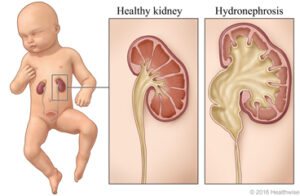Polycystic ovary syndrome (PCOS) is a hormonal disorder that affects many women. It is a condition in which the ovaries produce too much androgen (a male hormone), which can interfere with ovulation and cause other symptoms. PCOS is one of the most common hormonal disorders affecting women of reproductive age.
Symptoms of PCOS can include irregular periods, heavy periods, hair growth on the face, chest, stomach, or back, acne, weight gain, and difficulty getting pregnant. Some women with PCOS may also have insulin resistance, which can lead to high blood sugar levels and an increased risk of developing type 2 diabetes.
If you think you may have PCOS, it is important to see a healthcare provider who can diagnose the condition and recommend appropriate treatment. A diagnosis of PCOS is usually made based on symptoms, a physical exam, and blood tests to check hormone levels.
Treatment for PCOS may include lifestyle changes, such as eating a healthy diet, exercising regularly, and losing weight if necessary. Medications may also be prescribed to regulate menstrual periods, lower androgen levels, and help with insulin resistance.
In addition to medical treatment, there are also self-care practices that can help manage PCOS symptoms. These include:
- Eating a healthy diet: Eating a balanced diet that is low in processed foods and sugar can help regulate blood sugar levels and improve overall health.
- Exercising regularly: Regular exercise can help manage weight, reduce insulin resistance, and improve overall health.
- Getting enough sleep: Getting enough sleep is important for hormone regulation and overall health.
- Managing stress: Stress can worsen PCOS symptoms, so finding ways to manage stress, such as through meditation or yoga, can be helpful.
- Educating yourself: Learning about PCOS and how it affects your body can help you make informed decisions about your health and treatment options.
It is important to remember that PCOS is a chronic condition that requires ongoing care and management. Working with a healthcare provider to develop a personalized treatment plan that addresses your individual symptoms and concerns is the best way to manage the condition and improve your overall health and well-being.





